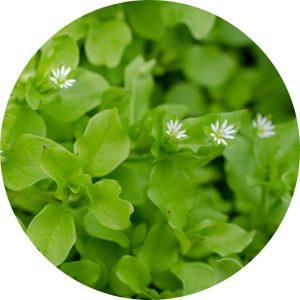Our last blog covered 5 recommendations for early summer turf tips. After you’ve read that, come back for these additional tips. As the end of the Spring season is nearing, you want to implement these practices to help your turf withstand the high heat of Summer.
1. Scout for Weeds

The next wave of weeds are germinating. The most likely weed to start emerging in early summer is crabgrass. If you’ve done a good job this spring managing weeds, then you’ve already dramatically impacted pressure for the summer. So, scout for areas of pressure and get to work on pulling them manually when possible. Identify why the weed is present, to educate your client when inevitable questions pop up.
In April, we went into detail on cause and treatment for Clover, Chickweed, Poa Annua, and Dandelions. <— Take a look at those blogs if any of those weeds are presenting issues!
2. Repair Trouble Spots
Lawn maintenance takes a lot of work, which is why staying on top of trouble spots is so important. If you maintain athletic fields, look to make repairs around goal mouths or face-off circles before summer heat sets in. For home lawns, identify low spots or high traffic spots that could be quickly leveled and give your client the consistent look they want for enjoying their yard all summer.
A good way to manage this is pre-blending seed with a 60/40 loam/compost and having a bulk container on your trailer so you have the repair blend available throughout the day. Don’t make these repairs harder than they need to be. A little bit of extra work goes a long way with customers.
3. Organic Pest Management
Summer evenings in New England are delightful, but mosquitos can be a drag when enjoying your cookout. Apply Mosquito Cure monthly to help mitigate these biting pests and establish a strong perimeter to keep your customers happy. Ticks are a major issue for humans and pets alike. Cedar oil is a proven repellant of ticks and a great way to organically manage ticks.
Lastly, chinch bugs can be a major pest for summer lawns – causing them to wilt to be unsightly during prime outdoor season. You can combine all three of these products into one application to remain efficient and effective against outdoor pests. Organic pest management is a great addition to organic landscape programs, keeping employees busy and clients happy.
4. Maintain your Equipment
Spring growth and mowing frequency takes a toll on your machines. Take advantage of a rainy day and sharpen your blades to ensure a nice clean cut throughout the summer. OR swap your blades for new ones and sharpen the dulled ones for your late summer swap.
In addition, add string line to your trimmers so you have less chance of needing to do this on a client’s site. Be sure to stay on top of equipment maintenance to keep your team focused on a client’s landscape and not fussing with equipment when in the field.
As always, we’re here to help you. Follow these early summer turf tips, set your programs up for success, and reach out if you want PJC’s guidance doing so.
